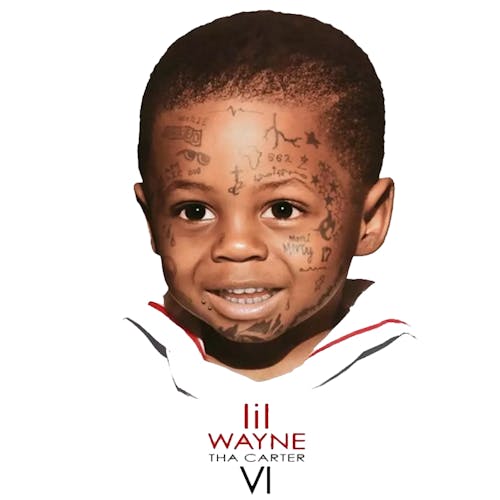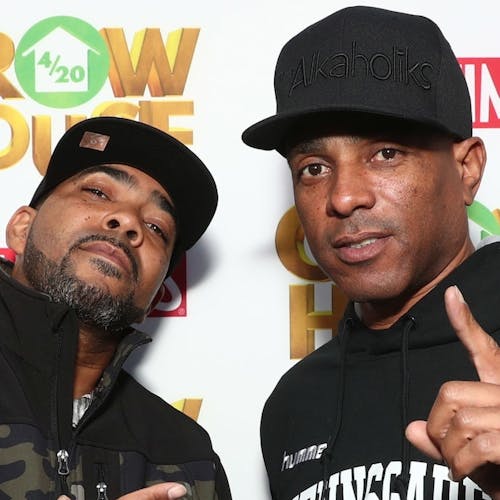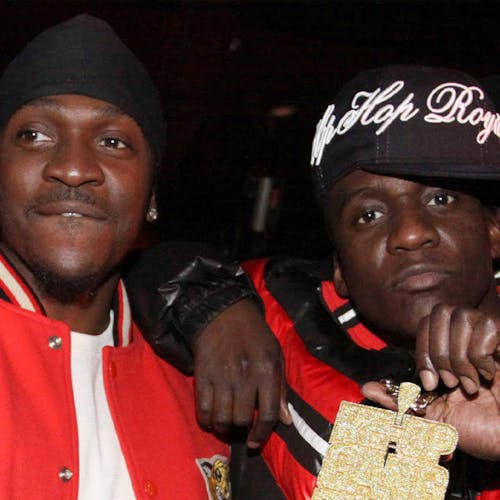
Money, Music, Martyrdom: Death and the Rap Game
Money, Music, Martyrdom: Death and the Rap Game
Published Tue, January 11, 2022 at 12:00 PM EST
*published 1/11/22
"Is it just me or is there a lot of death in Hip-Hop right now?"
I've heard that question more often than I can count in recent years. From across the spectrum; die-hard heads and casual cultural bystanders have asked it. And it's not hard to see why: the headlines are right there. From high-profile murders of Hip-Hop stars like Nipsey Hussle and Young Dolph; to health related deaths of legends like Biz Markie and Kangol Kid of UTFO; to the addiction struggles of stars such as DMX and Shock G—it does feel like death has taken up residence in Hip-Hop culture in a way that feels unique to Hip-Hop culture. But death isn't unique to Hip-Hop. What's unique is how we engage with it. And how an industry always appears poised to make the most out of the morbidity and mortality—in ways that we've gotten far too comfortable with.
Of course, music history is filled with tragedy. From murder to suicide to overdose to plane crashes; legends like Sam Cooke, John Lennon, Billie Holiday, Charlie Parker, Marvin Gaye, Karen Carpenter and so many others never lived to be elderly people. Jeff Buckley's drowning, Aaliyah's plane crash, the shooting of Dimebag Darrell; we all know so many fatalistic star stories. And the romanticization that followed the demise of so many luminaries became a part of their legacy; for many fans and commentators, the venerated, post-mortem version of these icons is the only version they've ever known. And Hip-Hop is no different: after all, so many of our biggest names, like 2Pac, Biggie, Eazy-E and others, have long been immortalized as rap game martyrs.
It often feels like death looms over the Hip-Hop generation(s) in a way that even elders who endured Jim Crow and World Wars and Vietnam didn't have to grapple with. It seems as though every day brings with it news of another rapper who has passed on: older rappers dying from health issues as young rappers get cut down by the streets. Death is obviously inevitable for everyone, but why does it feel like death and the rap game have become so inextricably linked?
DROP YOUR EMAIL
TO STAY IN THE KNOW
On social media, our romanticizing of death has become a fairly predictable ritual. You know that you will see the deceased trending across platforms; as everyone posts reverentially or dismissively, the memes will soon follow. It can be numbing, but it also adds to the cyclical spirit of how we collectively mourn. It begs the question: have we just gotten way too accustomed to young Black folks dying?
There is something about the way death gets presented in the glut of 24-hour news; via the endless din of the web, and our compulsive need to meme and commodify so much of popular culture ad nauseum. Watching names and faces like Prince Markie Dee, Black Rob, DMX and others collected on JPGs and GIFs has become part of our ritualistic grieving process, but it can often feel empty and in the service of online "engagement." We commercialize the grief.
Another uncomfortable facet of how the Hip-Hop industry reacts to death is the commodification of mortal loss. The deceased artist is now a hot trending topic, with stories popping up across social media and other online platforms. It leads to an inevitable uptick in streams and searches; and suddenly said rapper is a profitable commodity again. There's always easy "give them their flowers while they can smell them" chatter when a favorite from yesteryear passes on and is suddenly awash in adulation; but there is justifiable discomfort in watching the way companies who couldn't be bothered to push said artist's streams when they were alive suddenly somehow find the mechanism to do so once they've died.
The release of DMX's posthumous album Exodus was hotly anticipated across entertainment media. The album, which was completed before his April 2021 passing, was reviewed by virtually every major music platform. It was the kind of coverage a DMX album hadn't enjoyed since the early 2000s. Because of his death, suddenly, the world couldn't wait to hear his final creative statement. There's something morbid about a rapper's cultural cache rising once he's no longer with us. Its especially stinging when one considers how few avenues there are for older Hip-Hop artists to have their contemporary works heard or celebrated.
This is an industry that didn't sustain VH1's "Hip-Hop Honors;" that hasn't embraced the opening of the Hip-Hop Museum with high-profile gusto; that has not consistently shown that it is willing or capable of celebrating the culture's heritage and legacy. Hip-Hop elders aren't given industry reverence and prestige; how many major award shows do rap greats get invited to once they're not dominating the charts anymore? Hip-Hop gets elevated so long as it remains a hot commodity, which is an unfortunate dynamic considering how many interests are served by so much death.
The two best-selling rap albums of the 1990s are 2Pac's All Eyez On Me and The Notorious B.I.G.'s Life After Death; those two albums both have the ghosts of these respective artists lingering. All Eyez... was released six months before 2Pac's September 1996 murder; Life After Death dropped less than two weeks after Biggie was killed in March 1997. Those two albums would've been monster hits regardless, but it's hard not to attribute some of their draw to the darkness under which they were released. On his album, Biggie famously rapped "You're nobody til somebody kills you," and the industry seems to embrace that idea wholeheartedly.
"The culture" is often obscured by the machinations of that industry. To be certain, Hip-Hop is lucrative enough for those who profit the most from it to have an interest in sustaining it. But when legends make big headlines when they die; while receiving little-to-no recognition while they're here, it indicates a callousness in regards to rappers' legacies as artists, never mind their fiscal well-being as businesspeople and performers. This industry often does not do right by the culture from whence it sprung.
I have heard consistently from older Hip-Hop fans that they didn't know Nipsey Hussle all that well until after he died; and I've heard the same regarding Young Dolph. Conversely, so many younger Hip-Hop fans have made it clear they had no idea who Kangol Kid was until he lost his battle with colon cancer; or they were uninformed about Jessie D of the Force MDs. Rap's generation gap is a popular talking point, but the culture got to this place because the industry didn't care enough to keep it from happening.
Hip-Hop news sites will cover the arrest and/or shooting of virtually any rapper with a Soundcloud link and an IG checkmark; but you'd be hard-pressed to find the celebration of the culture's heritage and history in the same spaces as the latest mugshot. Rap game dysfunction gets clicks; "Hip-Hop history" is passé. If you learned more about Kangol Kid in the wake of his death than you did prior; this isn't a judgment against you. But it should give every Hip-Hop fan pause that, so often, death is the fastest way for so many platforms to recognize that legends are legendary.



